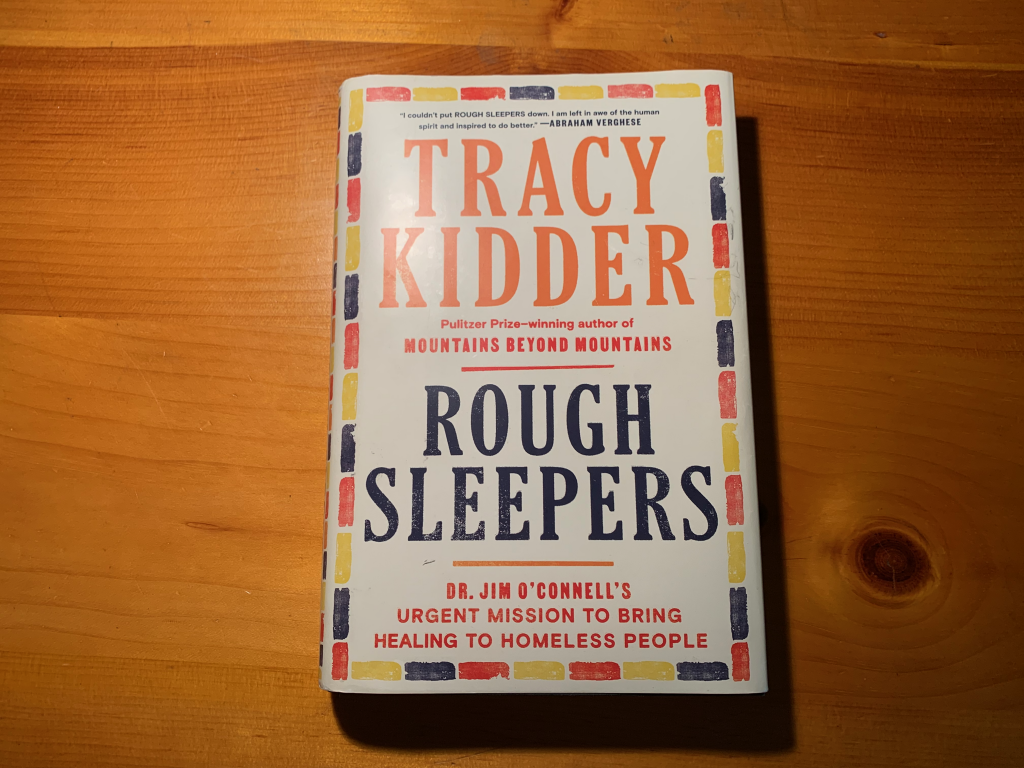Health equity
Summer reading — Rough Sleepers
I thought I understood healthcare for the homeless, but I had a lot to learn. Rough Sleepers: Dr. Jim O’Connell’s Urgent Mission to Bring Healing to Homeless People describes Boston’s Healthcare for the Homeless Program by following Dr. Jim O’Connell’s career of caring for people who live, and sleep, on the streets. He ended up…
Read MoreState Health Compare finds CT access to care is good but costly
Connecticut residents have very good access to healthcare, but care is unaffordable for too many. 93% of CT residents have a usual source of care According to updated health metrics, in 2020-2021, Connecticut ranked third best among states in the percent of residents with a usual source of care. Having a usual source of care…
Read MoreOp-Ed: This Is Why CT Can’t Lower Healthcare Costs
After years of deliberation, Connecticut’s state plan to cap healthcare costs has finally identified the drivers of those costs in our state. But the Steering Committee, dominated by healthcare industries, still isn’t brave enough hold the overspenders accountable. They want the profitable industries to come up with ideas to lower their own costs (what could…
Read MoreReport estimates public coverage not available for 56,000 CT noncitizen residents next year
A new report by the Urban Institute estimates that 67% of Connecticut’s uninsured noncitizen residents won’t be eligible for Medicaid, CHIP, or health insurance exchange tax credits (AccessHealthCT) coverage next year, although they pay taxes. Most noncitizens with insurance coverage are covered through employment. Without expansions of eligibility, 56,000 Connecticut residents will remain uninsured next…
Read MoreAnalysis: How Brain Shortcuts Undermine Policymaking
Thinking is hard work. Adult brains are only 2% of our body weight, but they use 20% of our body’s energy. To handle the load, we have evolved hard-wired shortcuts called cognitive biases that sometimes backfire. Public policymaking is not immune – it’s riddled with biases that are driving poor decisions. Read more
Read MoreOp-Ed: Artificial Intelligence can be the solution, when it isn’t the problem
Legislators want the state to evaluate the growing role of Artificial Intelligence (AI) in state agency decision making. As a tool, AI is neither good nor evil, it’s all about how it’s used. Badly done, AI can deny appropriate access to healthcare. But done well, it has the potential to improve care by removing individual…
Read MoreCT low wage workers pay more but get less health benefits
Download the data Download the brief Connecticut workers with the least resources are charged more for less, when they are offered health benefits, according to a new analysis of 2021 federal Medical Expenditure Panel data. The lowest wage workers in Connecticut are less likely to be offered health benefits, are offered less generous plans, and…
Read MoreNew standards to include health equity lens in effectiveness, fair pricing analyses
There is a growing consensus that healthcare systems can, unintentionally, exacerbate health disparities for underserved communities. There is a special concern that, as more payers use health technology assessments (HTAs) to promote value in the healthcare system, that health equity be incorporated into the methods. HTAs are evidence-based evaluations of healthcare treatments for clinical effectiveness…
Read MoreLegislators hear voices calling for consolidation protections to lower healthcare costs
Download our testimony Yesterday’s public hearing testimony was largely supportive of two bills to prohibit anti-competitive clauses in hospital system contracts with payers. Seventeen testimonies favored the bills, while eight opposed, mainly calling for more transparency and consistency in contracts. Several testimonies (here, here, here, here, and here) favoring the bills came from state residents…
Read MoreInsurance committee to hear bills that mitigate consolidation and lower healthcare costs
Download our testimony One of the main drivers of Connecticut’s rising healthcare costs is consolidation in the healthcare market, making health coverage increasingly unaffordable for consumers, employers, and businesses. The consolidation of hospitals and providers into large health systems in Connecticut has stifled competition, allowing prices to rise unchecked. Large health systems use anti-competitive contract…
Read More







